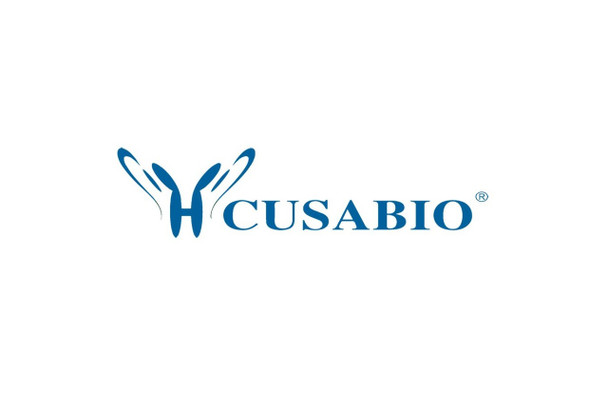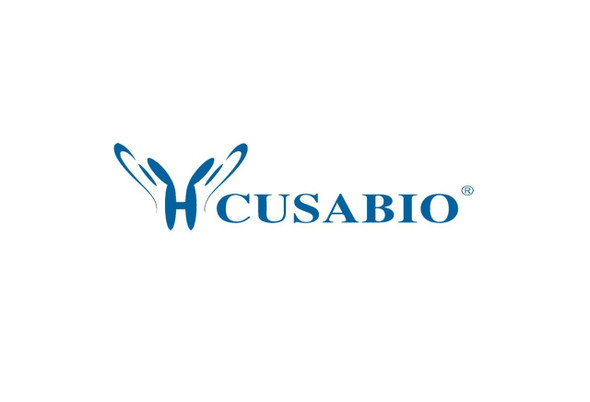Cusabio Human Recombinants
Recombinant Human RB1-inducible coiled-coil protein 1 (RB1CC1), partial | CSB-EP855061HU1
- SKU:
- CSB-EP855061HU1
- Availability:
- 13 - 23 Working Days
Description
Recombinant Human RB1-inducible coiled-coil protein 1 (RB1CC1), partial | CSB-EP855061HU1 | Cusabio
Alternative Name(s): FAK family kinase-interacting protein of 200 kDa (FIP200) (KIAA0203) (RBICC)
Gene Names: RB1CC1
Research Areas: Others
Organism: Homo sapiens (Human)
AA Sequence: AIQTALKEFKLEREVVEKELLEKVKHLENQIAKSPAIDSTRGDSSSLVAELQEKLQEEKAKFLEQLEEQEKRKNEEMQNVRTSLIAEQQTNFNTVLTREKMRKENIINDLSDKLKSTMQQQERDKDLIESLSEDRARLLEEKKKLEEEVSKLRSSSFVPSPYVATAPELYGACAPELPGESDRSAVETADEGRVDSAMETSMMSVQENIHMLSEEKQRIMLLERTLQLKEEENKRLNQRLMSQSMSSVSSRHSEKIAIRDFQVGDLVLIILDERHDNYVLFTVSPTLYFLHSESLPALDLKPGEGASGASRRPWVLGKVMEKEYCQAKKAQNRFKVPLGTKFYRVKAVSWNKKV
Source: E.coli
Tag Info: N-terminal 10xHis-tagged and C-terminal Myc-tagged
Expression Region: 1241-1594aa
Sequence Info: Partial
MW: 47.7 kDa
Purity: Greater than 85% as determined by SDS-PAGE.
Relevance: Involved in autophagy. Regulates early events but also late events of autophagosome formation through direct interaction with Atg16L1. Required for the formation of the autophagosome-like double-membrane structure that surrounds the Salmonella-containing vacuole during S.typhimurium infection and subsequent xenophagy. Involved in repair of DNA damage caused by ionizing radiation, which subsequently improves cell survival by decreasing apoptosis. Inhibits PTK2/FAK1 and PTK2B/PYK2 kinase activity, affecting their downstream signaling pathways. Plays a role as a modulator of TGF-beta-signaling by restricting substrate specificity of RNF111. Functions as a DNA-binding transcription factor. Is a potent regulator of the RB1 pathway through induction of RB1 expression. Plays a crucial role in muscular differentiation . Plays an indispensable role in fetal hematopoiesis and in the regulation of neuronal homeostasis.
Reference: "Nutrient-dependent mTORC1 association with the ULK1-Atg13-FIP200 complex required for autophagy." Hosokawa N., Hara T., Kaizuka T., Kishi C., Takamura A., Miura Y., Iemura S., Natsume T., Takehana K., Yamada N., Guan J.L., Oshiro N., Mizushima N. Mol. Biol. Cell 20:1981-1991(2009)
Storage: The shelf life is related to many factors, storage state, buffer ingredients, storage temperature and the stability of the protein itself. Generally, the shelf life of liquid form is 6 months at -20?/-80?. The shelf life of lyophilized form is 12 months at -20?/-80?.
Notes: Repeated freezing and thawing is not recommended. Store working aliquots at 4? for up to one week.
Function: Involved in autophagy
Involvement in disease:
Subcellular Location: Nucleus, Cytoplasm, Cytoplasm, cytosol, Preautophagosomal structure
Protein Families: ATG17 family
Tissue Specificity: Expression levels correlated closely with those of RB1 in cancer cell lines as well as in various normal human tissues. Abundantly expressed in human musculoskeletal and cultured osteosarcoma cells.
Paythway: Autophagy-animal
Form: Liquid or Lyophilized powder
Buffer: If the delivery form is liquid, the default storage buffer is Tris/PBS-based buffer, 5%-50% glycerol. If the delivery form is lyophilized powder, the buffer before lyophilization is Tris/PBS-based buffer, 6% Trehalose, pH 8.0.
Reconstitution: We recommend that this vial be briefly centrifuged prior to opening to bring the contents to the bottom. Please reconstitute protein in deionized sterile water to a concentration of 0.1-1.0 mg/mL.We recommend to add 5-50% of glycerol (final concentration) and aliquot for long-term storage at -20?/-80?. Our default final concentration of glycerol is 50%. Customers could use it as reference.
Uniprot ID: Q8TDY2
HGNC Database Link: HGNC
UniGene Database Link: UniGene
KEGG Database Link: KEGG
STRING Database Link: STRING
OMIM Database Link: OMIM











